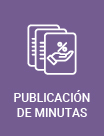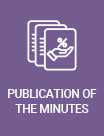Minutes for Banco de la República's Board of Directors Meeting on September 30, 2021
On September 30, Banco de la República's board of directors (BDBR) decided unanimously to begin the process of normalizing monetary policy. The board voted 4-3 to increase the policy interest rate by 25 basis points to 2.0%, with three dissenting members voting for a 50-point increase.
The unanimous decision to raise interest rates and begin normalizing monetary policy took into account the following considerations:
Third-quarter indicators suggest renewed dynamism in GDP growth following a partial interruption in the second quarter caused by roadblocks and a third wave of the COVID-19 pandemic. Positive performance in domestic demand, driven by private consumption, and a strengthening in external demand were the most important factors in this recovery. An improvement in terms of trade and recovery in investment also contributed to economic growth.
As a result, the technical staff revised its GDP growth forecasts upward to 8.6% in 2021 and 3.9% in 2022, suggesting smaller excess productive capacity that would be expected to tighten at a faster rate than previously anticipated.
Annual inflation continued to rise in August, exceeding projections at 4.4%. Core inflation measured as the CPI excluding food and regulated items was 2.3%. Inflationary pressures have originated largely in local and international supply shocks, which are expected to be transitory but whose durations may vary, possibly limiting short-term convergence to the target rate. A partial withdrawal of some price relief measures accentuated inflationary pressures.
In this context, the technical staff revised its inflation forecasts upward to 4.5% for the end of 2021 and 3.5% for the end of 2022. Surveys and other recent indicators suggest that inflation expectations have increased, though in the medium term these remain close to the target.
The technical staff forecasts that the current account deficit will increase from 3.6% of GDP in 2020 to 5.0% in 2021 and 4.5% in 2022. The widening of the deficit reflects greater dynamism in demand compared to domestic supply and is in line with a decline in household savings as private consumption recovers. This imbalance is being financed by capital flows, notably in foreign investment (which has recovered significantly compared to 2020) and public sector resources through credit and portfolio investment.
BDBR's risk evaluation considered the possibility of a worsening of the pandemic that could affect recovery in domestic and external demand. It also allowed for the possibility that deviations in expected inflation compared to the target could become persistent and lead to indexation at higher rates of inflation. The political dilemma inherent in these risks was discussed in detail.
Considering the clear signs of economic recovery, there was consensus among the board members over the need to begin a gradual withdrawal of monetary stimulus and prevent a de-anchoring of expected inflation tied to indexation processes. The board members agreed that the factors driving inflation have been largely due to supply shocks related to disruptions in supply chains, high costs of maritime transport, the effect of blockades on productive processes, and the withdrawal of price relief measures, which would not respond to increases in interest rates. The board members also noted that the monetary policy stance has become more expansive as expected inflation has increased, distancing the real policy interest rate from its natural level. Given the above, four board members voted in favor of a 25-basis point interest rate increase, while three board members voted for a 50-point increase.
The board members in the majority emphasized the temporary character of the current pressures on prices, highlighting the fact that expected inflation remains anchored to the target in the medium term. They noted that this would provide flexibility for a more gradual approach in adjusting monetary policy, and also stressed that adjustment in the labor market has not yet been completed. Finally, they highlighted the remaining uncertainty that surrounds the projections and noted the potential worsening of the pandemic due to the Delta variant.
The three board members who voted for a 50-point increase noted that expected inflation for the basket excluding foods is already above the 3% target in the most recent surveys. They suggested that postponing adjustments in the policy rate could increase the need for larger increases in the future and underlined the fact that more significant increases in the benchmark rate at the beginning of the normalization process would reaffirm the Bank's commitment to the target and help moderate increases in expected inflation. They also signaled their uncertainty over how transitory or permanent the shocks to inflation will prove to be.
Finally, these board members highlighted the experience of managing monetary policy in 2020, when the BDBR opted to begin reducing interest rates in a relatively aggressive manner in response to the onset of the pandemic. In retrospect, this may have been a contributing factor to the success of monetary stimulus in economic recovery, as suggested by current GDP growth figures.














.png)

































